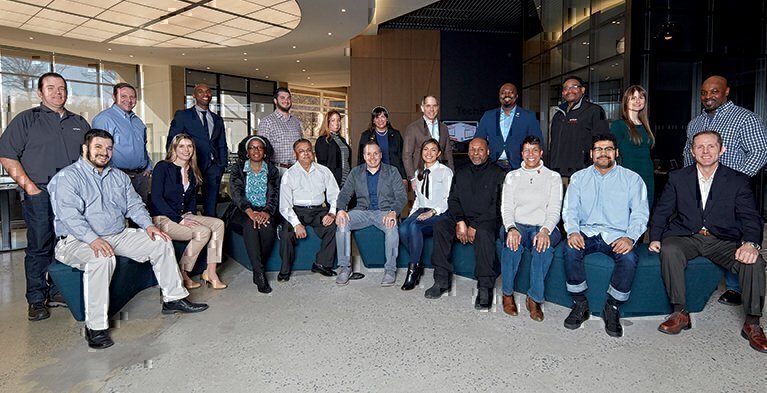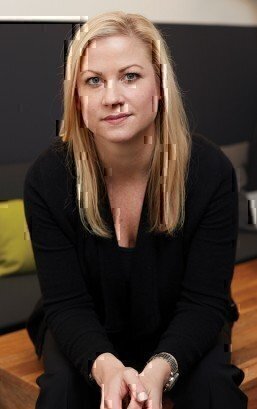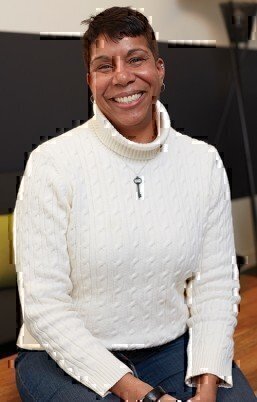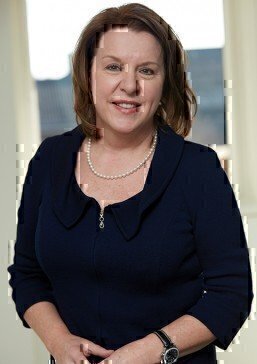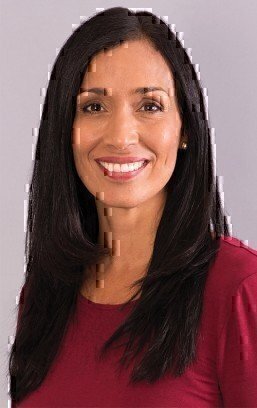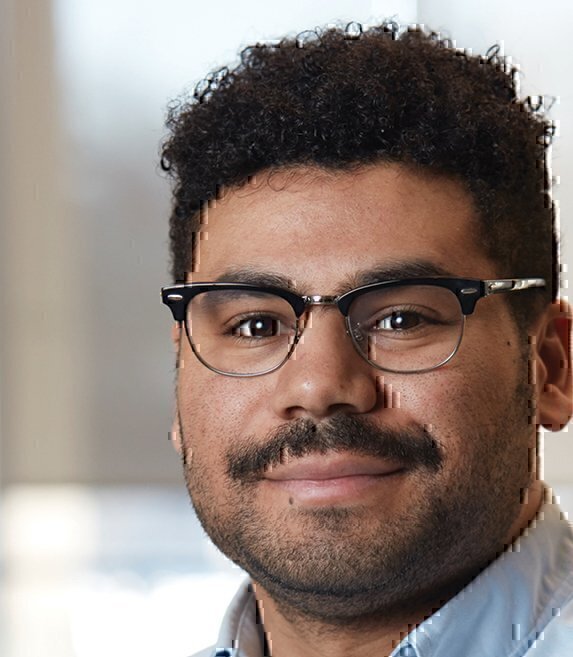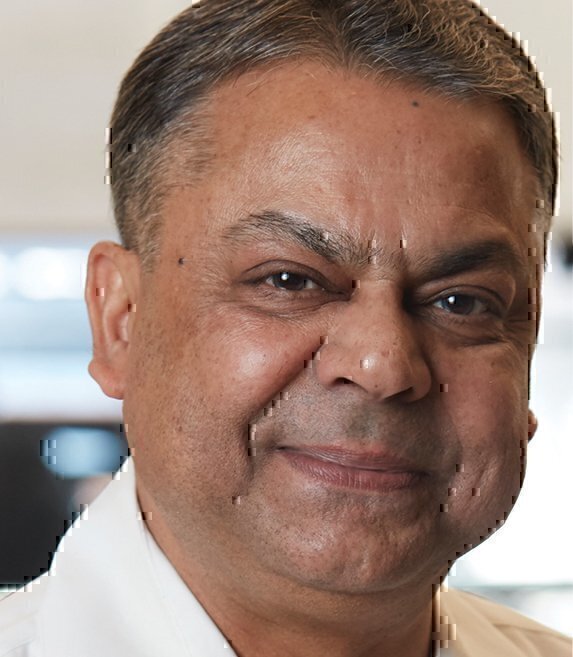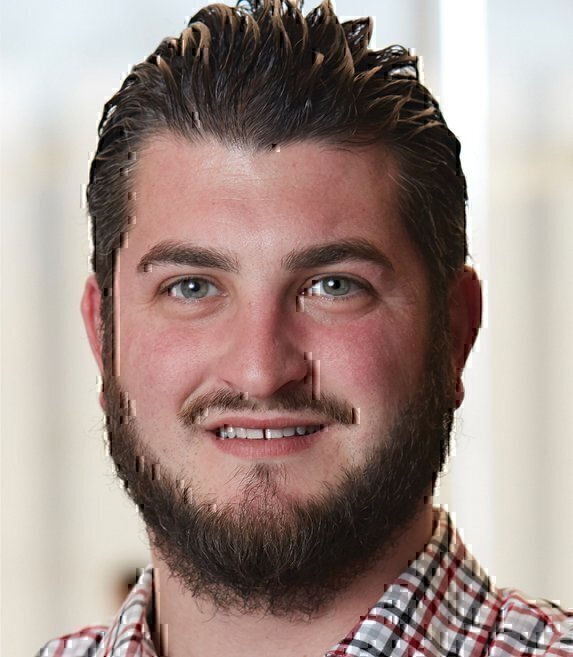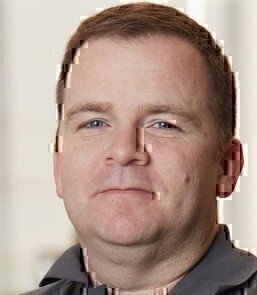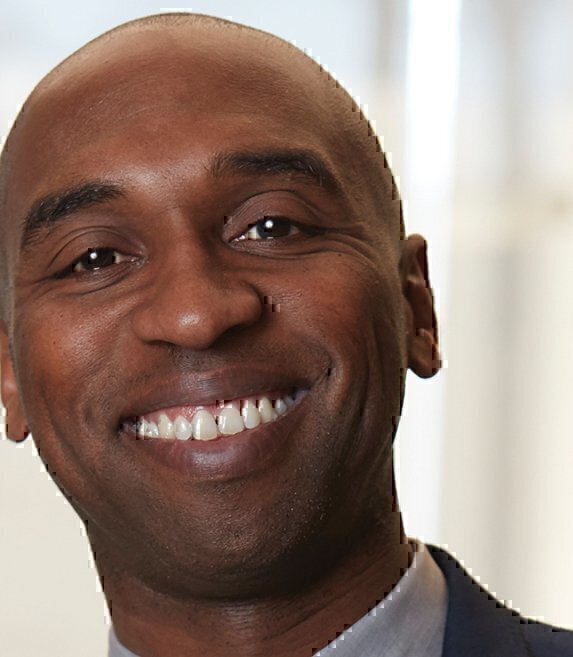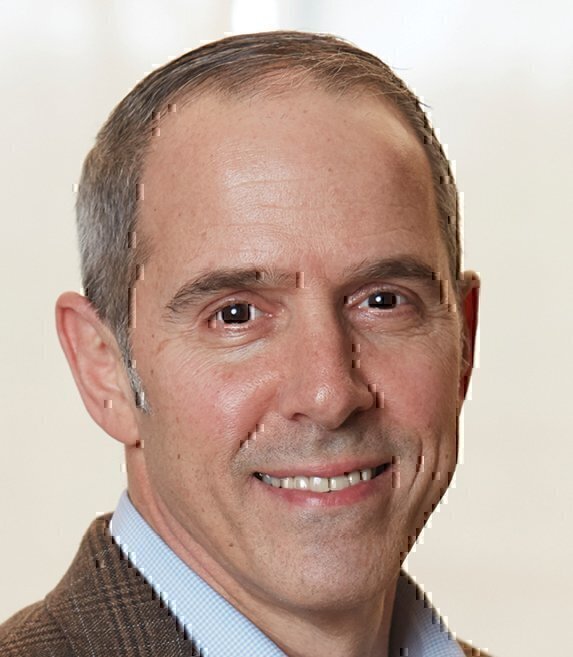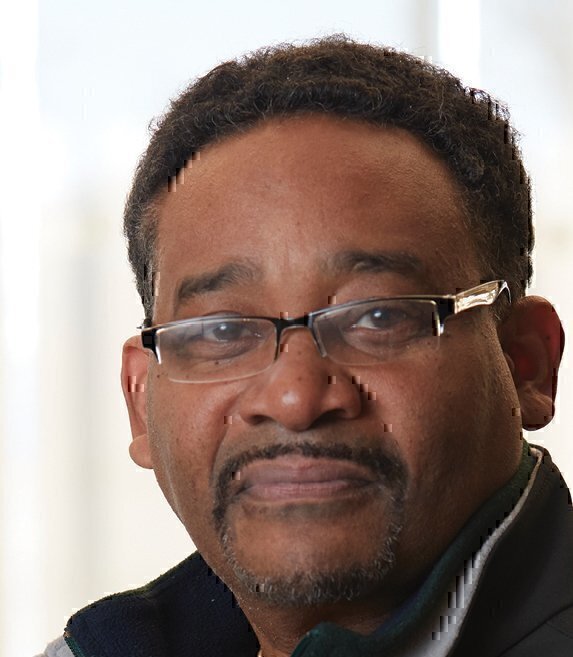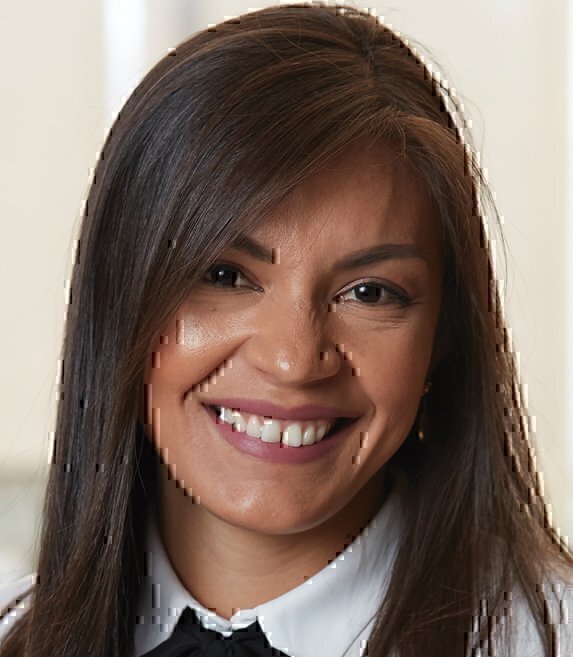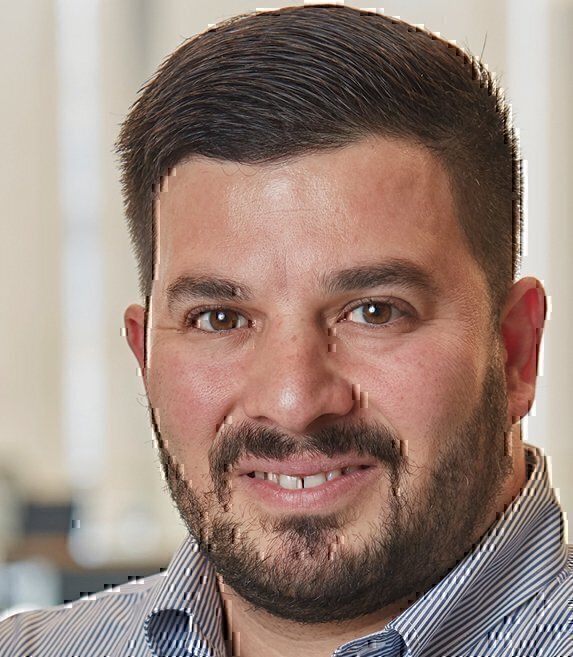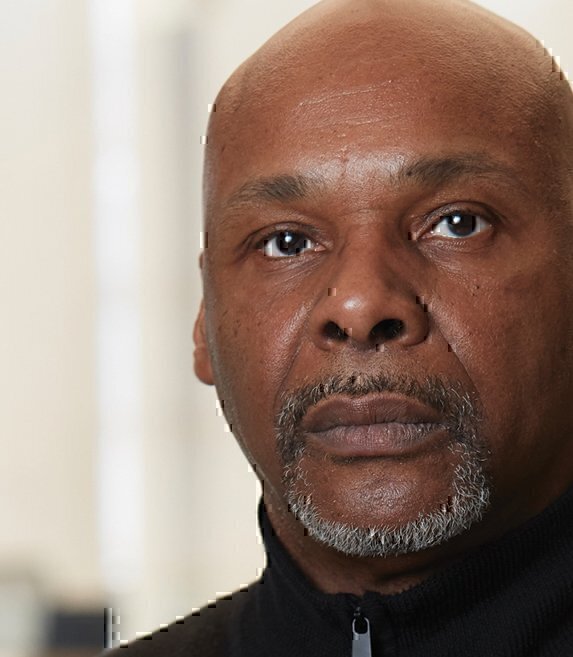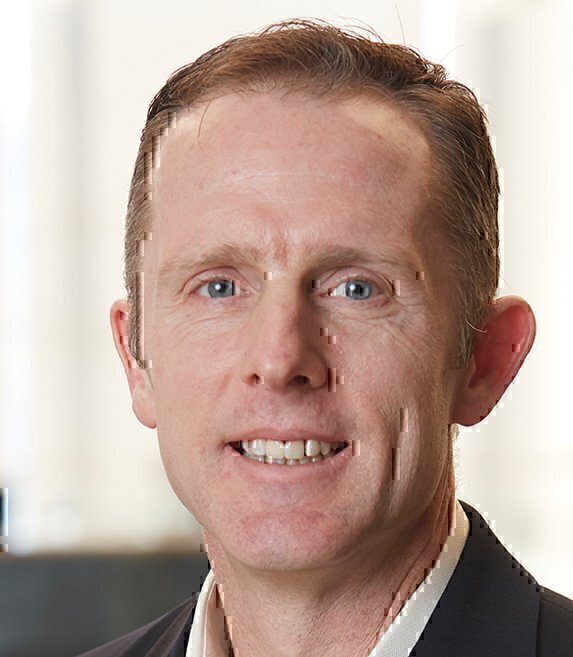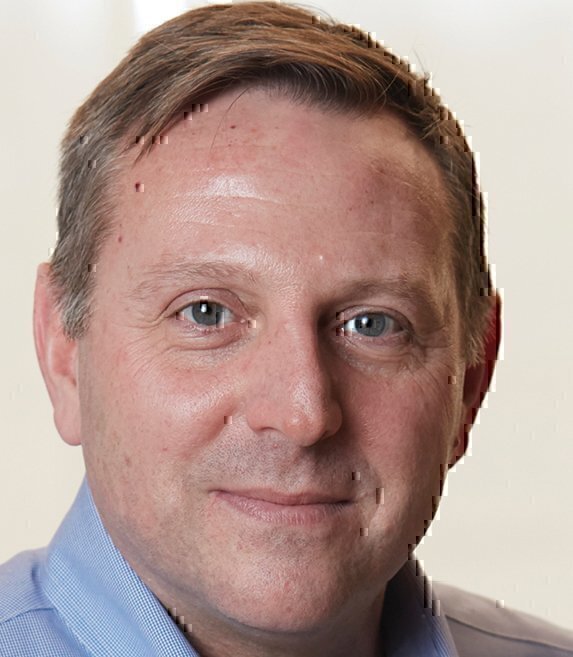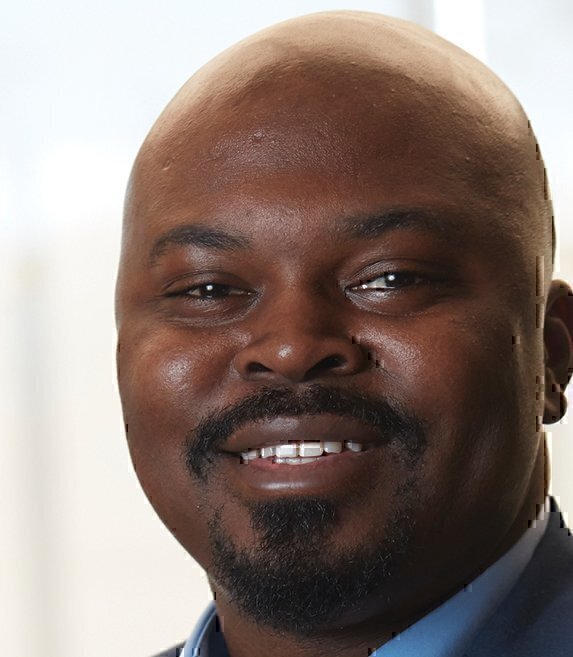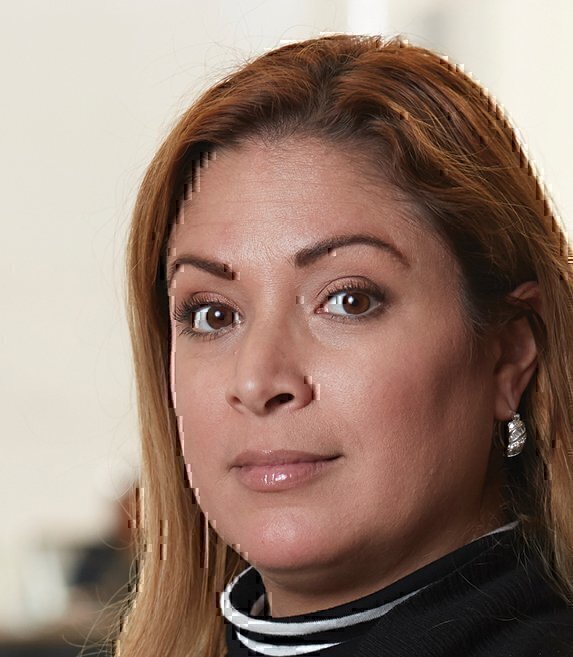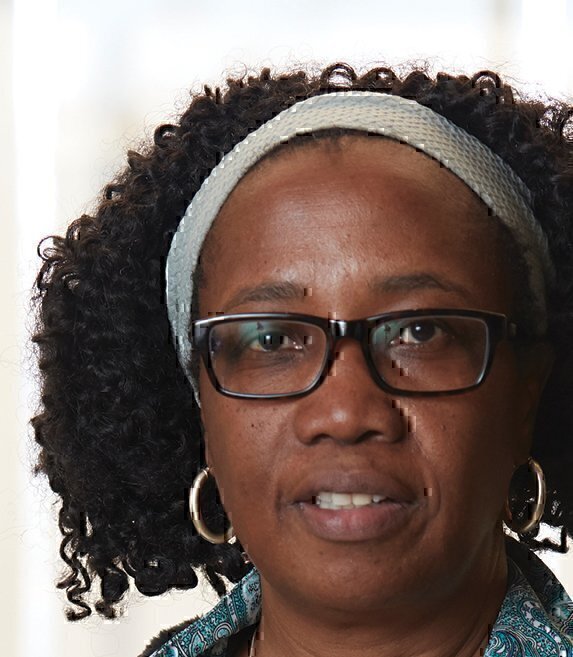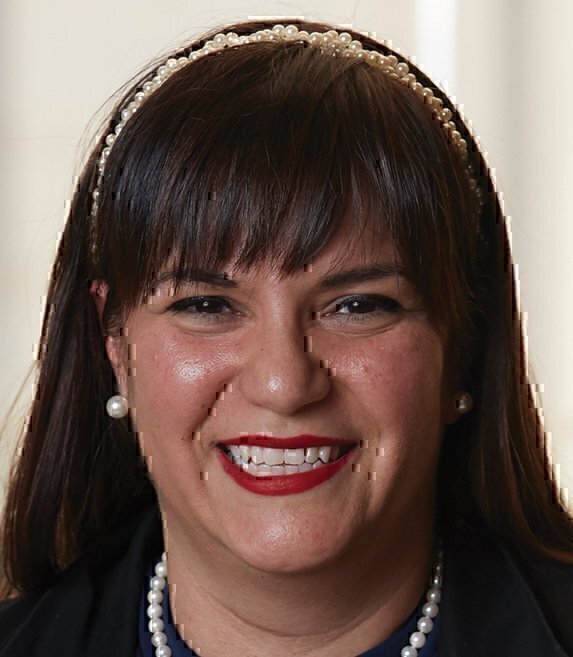*Company is a paid client.
Basking Ridge, N.J., is a picturesque East Coast town, the very image you might expect of a quintessential community just beyond the reach of the hustle of New York City. This is the kind of place you can easily imagine raising a young family, and it is also home to our 2018 Military Friendly® Company of the Year, Verizon.
VIEW CAREER OPPORTUNITIES WITH VERIZON
If you are like me, you have not escaped Verizon’s* lead positioning within the “wireless wars” and the mere mention of Verizon’s name conjures a plethora of battling advertising. I ask you to leave that all behind. Return with me to that picturesque Jersey town, to the headquarters campus of a growing company that is deeply rooted in U.S. telecommunications history, but first formed as Verizon Communications Inc., on June 30, 2000.
I suppose you could say that Verizon is a “millennial” as far as companies go, and I believe that comparison may be more meaningful than it seems at first glance. There is a definitively different feel to Verizon that was reflected in the consistency of message across every interview.
I can honestly say that I had no idea how important readiness was to everyone in Verizon from retail floor to executive suite, although they use a different term: Reliability. Reliability … a hallmark of Verizon Wireless marketing, as I now understand is simply the civilian version of military readiness and willingness to take action at any moment in any crisis. Upon reflection, I should perhaps have been less surprised given that Verizon’s Chairman and CEO, Lowell C. McAdam, is a U.S. Navy veteran.
VIEW VERIZON’S COMMITMENT TO MILITARY VETERANS
While I had already reviewed the hundreds of data points that make up the Military Friendly® Companies survey, I
walked away with a very different perspective of this powerful telecommunications company, and could find no better representation of the direction of the Military Friendly® Companies program as we look to
the future:
- Verizon’s culture fits hand-in-glove with your military experience.
- Verizon’s embrace of diversity and customer service reflects the expectations you have of your brothers and sisters in uniform.
- Verizon’s dedication to product quality mirrors your own commitment to quality and accountability in the service you perform on behalf of a grateful nation.
- Verizon’s mission-orientation is inspired by this millennial generation’s demand for work that results in meaningful impact on the broader world.
With the Verizon Credo, their vision and values statement, as our guide, let us uncover what makes Verizon the 2018 Military Friendly® Company of the Year.
“We are committed to do the right thing…”
– Verizon Credo
My first conversation of the day was with Angie Klein, vice president of consumer segment marketing for Verizon Wireless, whose breadth of experience across the company and bias for action would be a theme throughout the day. One of the important aspects of the Military Friendly® Company program is to gain a deeper understanding of a company’s commitment to the military community over time. Any organization can throw out a banner and attend a few job fairs, but Military Friendly® is designed to identify those organizations that are invested in the military and veteran community over the long haul. Understanding a company’s commitment begins with understanding the company and its mission.
“Our success on the side of hiring military has been excellent for the firm; they are some of the best employees we have. And while their immediate impact on the business has been understood for a long time, there’s more here that we can do.” – Angie Klein, Vice President – Consumer Segment Marketing, Verizon Wireless
In this respect, Verizon is an ideal archetype of commitment. As Angie explained, “Verizon for 100 years, in whatever form we’ve been, services consumers every day. And it’s not an individual transaction, it’s an everyday service. Our commitment to ensuring that consumers are safe is part of who we are. When you think about everything that has happened in our country … our network consistently proves to be the strongest and the most important for people to rely on in states of emergency.”
This sense of purpose and mission was evident in every conversation without prodding or leading. Central to the consistency I witnessed in all of my discussions was the Verizon Credo, which makes comparisons to military culture easy to evaluate. Indeed, an important aspect of the Military Friendly® Company program is a company’s ability to provide a sufficient view of their corporate culture to determine the overlap between military and corporate values as a measure of “friendliness” to the military and veteran community.
As my conversation with Angie continued, the cultural connection we had seen in the survey data was clearly rooted in the Verizon Credo, “If I look at our Credo, there’s a lot of similar values between what all of our employees believe about what our obligations are to our consumers and the cultures of the military branches.
This includes Verizon’s long-term legacy and history of continuing to evolve and the shared tradition of service.” While it certainly helps to have a military veteran at the helm as Verizon does in Lowell McAdam, individually, Verizon team members were very aware of how this similarity of shared values evolved. As Angie explained, “Our success on the side of hiring military has been excellent for the firm; they are some of the best employees we have. And while their immediate impact on the business has been understood for a long time, there’s more here that we can do.”
A unique aspect of the Military Friendly® Company program is its extension across four pillars: veteran employment, military spouse employment, veteran-owned business supplier programs, and military consumer services and protections.
As the leader for consumer segment marketing, Angie is charged with leading all outreach to specific customer segments and was clear that the military community was a key priority for the foreseeable future. “The military is one of those few communities that we clearly have the right to win and serve in a unique way … From our hiring, our service to every military branch as a provider, to the pride of our employees who choose to serve the military community on and off the job.”
In this regard she explained their positioning as, “We don’t want anyone that has made this life choice to serve the country to have other hurdles to access what we believe to be a necessity of life … not only to have cell-phone service, but to have the best cell-phone service, especially as you are doing the job we all appreciate.”
How she and her team execute their mission, once again, reflected a very military approach. “My job in marketing is to serve our front lines, who serve our customers and to define programs that make them more successful,” she said. “We can’t do something that might be excellent for customers but very difficult for our front-line team, because it translates into the satisfaction we have, to how customers refer us and how customers believe they are treated and ensuring that customers get a special experience when they are served by Verizon.”
One instance of this was wanting to provide priority routing, not just online and in phone support, which veterans experience today, but in the stores. In locations with high military concentration, this became impractical. So her team listens to the front-line managers and performs rigorous research to identify the ways that consumers want to be served to ensure that Verizon is constantly optimizing the customer experience.
“Everything we do we build on a strong network, systems and process foundation.”
– Verizon Credo
I must say, without any negative reflection on any other interview, that my favorite conversation of my lengthy day with Verizon was with Kathrina “Kat” Hardy, senior manager of threat intelligence. Kat served as a Marine, meritoriously promoted to Sergeant while serving in the first Gulf War. Now, Kat runs operations for Verizon’s cyber threat management center.
Kat, like every Marine I’ve ever met, is no-nonsense, business-minded, focused and action-oriented. Kat’s story is the story of many veterans who find themselves stepping into civilian life only to have to start all over again. Fortunately for Kat, she had a specific set of technical skills gained during her service in the Marine Corps, and that set of skills was in demand by the then Bell Atlantic Mobile corporation, which would eventually evolve into the Verizon we know today.
“As you move up the ranks, you have got to be a leader, and you have to learn and know the job. At some point, Verizon expects you to move up the ranks.” – Kathrina “Kat” Hardy, Senior Manager – Threat Intelligence, Verizon, Marine Corps Veteran
Having entered the company prior to the formation of Verizon, Kat provided even deeper insight into the connection between the Verizon Credo and military culture. “As we became Verizon, you had a lot of different companies coming together, and so the Credo, I believe, was the attempt to take the best of all of those perspectives. We always had that sense of empowerment, make a decision, you don’t have to go and get the VP, you are in charge, so make the decision.”
This theme of empowering and expecting leadership at the lowest level sets the stage for a similar expectation that, “As you move up the ranks, you have got to be a leader, and you have to learn and know the job. At some point, Verizon expects you to move up the ranks.”
Even Verizon’s support of the military community is on a consistent path of upward evolution, as Kat explained, “I think Verizon is an organization that isn’t afraid of change; we understand the need to evolve and change, and our understanding of the value of veterans has evolved as more of us have joined the team or become Verizon customers.”
In true Marine Corps sergeant fashion, Kat had exceptional advice to offer to aspiring veterans seeking employment with Verizon, “I do what I love. You have got to have a job that you love. And obviously there are good days and bad days, but at the end of the day, I love what I do.” You’re not going to know about the company until you get inside the company, because there are always conflicts with colleagues and bosses. So don’t settle. Set a goal and go for it. For me, I feel that I lucked out, because I was swept up into Verizon.”
“Tomorrow we’ll do better.”
– Verizon Credo
Military Friendly® has the deepest history of any military and veteran evaluation program, and itself has experienced significant evolution over its 15-year history; constantly looking for meaningful measures that reflect the evolution of best practices. While we find that these practices must have leadership support to survive, they most frequently arise from operational experiences.
Enter Tommy Jones, senior manager of talent acquisition and leader of military programs, who has played a central role in the current iteration of Verizon’s outstanding programs. Having served 20 years in the Army, retiring as a first sergeant out of the Signal Corps with multiple tours of combat duty which garnered three Bronze Star awards, Tommy shares the no-nonsense, mission-driven focus that was evident in everyone at Verizon. His transition to Verizon was in part a driving force in how he has shaped the Verizon recruitment operations.
“During my transition, I tried to follow the model of looking at opportunities about a year out. I knew that I needed to complete my bachelor’s degree and I needed to focus on jobs in the field related to what I did in the military. So I had that part of the plan in place.
In my first three months I had an officer invite me to a career fair. I bought my first suit and found that all of the employers were welcoming and wanted to hire veterans and by the end of that I thought it would be pretty easy to find a job. I think I set myself up with a false sense of security.
At the end of the day at the fair, the last employer that I met with happened to be Verizon. He focused on my awards and accolades and he realized that I was telecommunications, which gave me a sense that he was interested and understood what I was bringing to the table … so I left that career fair like, ‘I’m golden, I’m going to be working for Verizon when I get out of the military and that’s it.’
That night, I went on to the website and applied to like 55 jobs and … it was radio silence. My reaction was, ‘Wow, I thought I had that in the bag and it didn’t work out that well.’ I was a little disgruntled with the recruiting process. I was a customer of Verizon and wanting to be a future employee of Verizon, and I wasn’t very happy with them.
Fast forward: I’m into my fourth or fifth month of transition and I’m getting nervous. I’m coming out of the field and at the PX and run into a Vietnam veteran and, appreciating all that they have done for us, I engaged with him and I wound up telling him about my experience in trying to get a job with Verizon. It turns out that his daughter worked at Verizon. That Monday I got an email and an invite to come in on Tuesday. At that point I got an opportunity to really talk to my experience and who I am and about my strengths.”
“During my transition, I tried to follow the model of looking at opportunities about a year out. I knew that I needed to complete my bachelor’s degree and I needed to focus on jobs in the field related to what I did in the military. So I had that part of the plan in place.” – Tommy Jones, Senior Manager Talent Acquisition/Military Programs, Verizon, Army Veteran
Tommy was brought into HR, where he was provided the opportunity to own and address the issues that he saw in 2013. In 2012, Verizon had hired 400 veterans, which is no small effort, but as their Credo states, “Tomorrow, we’ll do better.” Hiring Tommy and his team was an essential part of their evolution, finding the leader with the right passion and empowering that leader to take action. Within his first six months, Verizon had already hired 600 veterans. With this level of success, Tommy was given further resources to expand his efforts.
“I built this military recruitment team, because I had the support of our Verizon leadership. The biggest thing that has made Verizon successful is that they didn’t just say they wanted to hire veterans … they made the investment in-house in HR … we are going to hire veterans here first and they will help make us successful across the company.
“The goal was to get out there and provide a name and a face that can represent the military community to Verizon. Our names and our emails are on our website. Our cell phone numbers are on our business cards. We don’t hide from anyone, we are available. Whether it leads to a hire or not. Veterans appreciate a straight answer that can help them along the way. I didn’t want anyone to look at Verizon as a brand that was saying we were doing all of these things, but wasn’t walking the walk.”
In reflecting on the evolution of their program since 2013, Tommy recognized that the gap that exists between military and civilian employment in general is not a lack of intent, but a lack of information. “Our biggest challenge over the last three years has been to educate our hiring managers who don’t know what they don’t know. We do this in practical, interactive ways that breed people talking about their experience rather than just continuing with what they had been doing.”
“Our retail recruiters are now after it. They now understand how military experience relates to the jobs they are seeking to fill, and I think that is more the case across Verizon.” For military in transition, he encourages you to be part of the solution in every interview you take, represent yourself and your fellow veterans well.
“Hiring is a business decision, and even if you are qualified, the hiring manager has to do a risk assessment. Don’t get frustrated with the system and how it operates. Learn how it works. Every conversation, every interview is both a learning and a teaching opportunity where you can make the path easier for the next veteran that applies.”
“We focus on fundamental execution.”
– Verizon Credo
One sign of a company’s authenticity is senior leadership awareness and involvement in the program. Tami Erwin, executive vice president, wireless operations, is such a leader. She related a personal story of interaction with a new veteran customer that she met while spending time in a Verizon store. Yes, you may actually bump into one of the executive leaders of this global multi-billion enterprise while visiting a retail store.
“The pace at which we are changing and the amount of reliance people have on us, has forced us to realize that you not only have to be operationally excellent and be willing to take the hill, but you need to have a clear view of which hill you are taking and you need to be intentional at getting after it.” – Tami Erwin, Executive Vice President, Wireless Operations, Verizon
In this case, she came across a veteran who was transferring from another service and he explained, “That phone is my lifeline to my kids. And I sit here today not knowing if my kids are dead or alive because I didn’t have a reliable communication service and I’m here to get that connection back up today. Of course, Verizon ‘got after it’ in ensuring not only service for this veteran, but for many more.
Verizon not only understands how central communication is to daily life in the military community, they actively embrace the challenge of ensuring that their military and veteran customers have the service they need when they need it most. This starts with simple things like recognition of military service on the name tags of their retail employees and automatic customer service routing based on military affiliation. But achieving corporate-wide adoption takes more than policies.
“The pace at which we are changing and the amount of reliance people have on us, has forced us to realize that you not only have to be operationally excellent and be willing to take the hill, but you need to have a clear view of which hill you are taking and you need to be intentional at getting after it.”
Focus on execution, as noted before, begins for Verizon, not with customers, but with the employees: “We work hard to empower the front-line manager to make operational decisions. The reason we do this is because you can’t write a policy for every situation. Our front-line managers know that their primary job is to care for the people who work for them and the people who support those employees.
When a customer or an employee experiences this level of empowerment and ability to resolve issues quickly, it leaves a powerful impression about who we are and how important they are to us.”
Trust, clearly, is central to Verizon culture, which shows up in their action-orientation. “The way we operate is, if you touch it, you own it and if you don’t own it you undoubtedly influence it so get after it. No one is closer to the problem than the people in the field.
How do you give people the tools they need to deal with a situation at the time as opposed to calling back and asking for someone else to tell you what to do when they are not in the situation. Train them, equip them, give them the tools and capabilities they need and turn them loose against the challenge.”
Once again, the similarities between Verizon and military culture are clear to those of us who have served, which has positioned Verizon as a destination of choice for military in transition. “The thing we spend time talking about in our business is that you don’t get to ‘pocket veto.’
If we talk about it and we align and agree on something we are going to do, then we get after it and we do it with 100 percent of our commitment,” Tami said. “I have to believe, not having spent time in the military, but having met many people who have, that this is not dissimilar to the military mindset. There is a shared desire to drive execution. One of the pillars of who we are is to be operationally excellent.”
“We are not driven by ego but by accomplishment.”
– Verizon Credo
As the day wound to a close, I was able to round out my view of Verizon’s full-width embrace of the military and veteran community as I met first with Magda Yrizarry, senior vice president, talent and diversity and then Viju Menon, senior vice president and chief supply chain officer.
“Everyone wants to matter. When you come to work, you want to belong and you want to have the opportunity to contribute and to grow in the organization.” – Magda Yrizarry, Senior Vice President, Talent and Diversity, Verizon
As the Military Friendly® program evolved from the Military Friendly® Employer program to include supplier diversity and consumer services, we began to find that outcomes arise from culture, which is why an organization’s culture and commitment carry a relatively larger portion of the weight of our scoring. As Magda noted, “It’s not just what you do at Verizon that matters to your success, but how you do it matters.”
“Everyone wants to matter. When you come to work, you want to belong and you want to have the opportunity to contribute and to grow in the organization. You have to come into an environment where that can happen. For your own ability to maximize your potential, you should care about joining a company where you can do that. And then you should care that other people are like you, that they want to matter, grow and succeed.
As a leader, your behaviors should allow for others to grow and succeed in the same way. When people are part of that type of environment, it shows up to customers in the marketplace.” Corporations that serve the military community, do so from an honest and authentic place.
Just as military consumer support benchmarking were pioneered within the Military Friendly® program, so too is the lesser-discussed role companies have in supporting veterans who are business owners. With more than 2.5 million veteran-owned businesses operating in the U.S. and a higher than average success rate of veteran entrepreneurs, military service makes up a disproportionate portion of the supplier base for larger corporations.
Here too, the Verizon commitment to the veteran community was well-established as Viju observed, “We have thousands of suppliers. The most successful partners are where there is a value resonance as opposed to just a turnkey service. We find that our veteran-owned businesses are strategic partners because of the values alignment we share. And the evidence is seen in the growth of our spend with our veteran-owned businesses which has increased 30 percent from three years ago.”
“In some cases, it is not that easy to do business with Verizon. We have to continually look at unintended consequences to our customer base. When we think about any supplier relationship, we have to build in risk analysis … veteran-owned businesses in my experience are a notch above the average. I think it goes back to the founding principles and the values upon which those companies function. There’s a bit of different DNA that gets brought to the forefront and that shows through in daily operations among veteran suppliers.”
Indeed, Viju capped the day very well in explaining Verizon’s embrace of the military and veteran community, “How do we enable Verizon to be the destination of choice, whether it be as an employer, a customer, a supplier? From a supplier perspective there are a lot of attributes that resonate from service owners that are veterans: how they lead with integrity, how they have a sense of urgency, and their ability to achieve a quick turnaround … to move with the speed and performance quality of Verizon itself … Beyond that, we know that those who have served in the military have unique sets of experience and training and capabilities that will help us beat the competition and be innovative and create meaningful growth and therefore careers for them and for others.”
“We know that those who have served in the military have unique sets of experience and training and capabilities that will help us beat the competition and be innovative and create meaningful growth and therefore careers for them and for others.” – Viju Menon, Senior Vice President & Chief Supply Chain Officer, Verizon
“Our word is our contract.”
– Verizon Credo
I found each interview at Verizon to be very introspective and thoughtful, but also centered on a common view of Verizon’s values. As each story unfolded, the picture became clear … of a 100-year-old organization that has continually evolved based on the joint, diverse, cooperative and focused effort of its people.
Their evolution began by hiring veterans into leadership positions, which set the stage for demonstrating the value of military experience as an operational and undeniable reality. Veterans working at Verizon understand their role in shaping civilian perspective of the military community, and they fully embrace this responsibility.
I believe Tami Erwin’s thoughts provide their own value proposition for why you should consider Verizon. “Our veterans are such exceptional employees. They have a greater tendency to align with our Credo, how we show up with respect and integrity, how we show up on behalf of our customers, and how we show up on behalf of each other. They have become such a great fit in our business that their colleagues have come forward with ways to honor them and have made that part of the DNA of who we are at Verizon.”
For this and every reason mentioned above, we are honored to commend Verizon as our No. 1 Military Friendly® Company of 2018.
If you are currently serving on active duty, in the National Guard or Reserve, if you are a military veteran, or a military spouse, you and your families are better off for having served. If you are seeking your next mission in a career you will love with people who will help you succeed, or making simple purchasing or investment decisions, you would do well to start your search with this year’s Military Friendly® Companies, all of whom, like Verizon, are constantly improving their programs and resources to ensure your success, not only with their companies, but throughout your transition to civilian life.
Any organization can throw out a banner and attend a few job fairs, but Military Friendly® is designed to identify those organizations that are invested in the military and veteran community over the long haul. To view the methodology behind the Military Friendly® Companies survey, CLICK HERE.
Verizon’s Veterans
Anthony Guzman
Solutions Specialist, Retail Stores
Verizon Wireless
Marine Corps veteran
Ashim Mukherjee
Senior Analyst, Financial Planning
& Analysis
Verizon Wireless
Army veteran
Emily Yorke
Project Manager, Network Implementation
Verizon Wireless
Air Force veteran
Dr. David M. Caruth
Marketing Manager, National Distribution
Verizon Wireless
Army veteran
Philip Jenkins
Director, Analytics and Customer Engagement
Verizon Consumer Markets
Army veteran
Henry “Curtis” Adamson
Director, Customer Service Operations Technical Support
Verizon Consumer Markets
Air Force veteran
Joseph Orecchio
Manager, Human Resources Business Partner
Verizon
Army veteran
Charles Cobbertt
Power and Space Engineer, Network Operations
Verizon Wireless
Air Force veteran
Veronica Villegas
Program Manager, Military Recruitment Team
Verizon
Army veteran
Stephan Smith
Specialist, Operations Engineer
Verizon
Navy veteran
Cory Acquista
Senior Analyst, Marketing
Verizon Wireless
Air Force veteran
Grant Fields
Analyst, Legal Support
Verizon Wireless
Air Force veteran
John Cherrey
Captain-Aviation
Verizon
Air Force veteran
Scott Hendrix
Director, Absence Administration
Verizon
Navy veteran
Kevin Battles
Solutions Manager, Retail Stores
Verizon Wireless
Navy veteran
Ileana Acevedo
Consultant, Product Management/Development
Verizon
Army veteran
Andrea Atkins
Specialist, Technical Support
Verizon Wireless
Army veteran
Brittney Becker
Military Recruiter
Verizon
Air Force veteran
Rebecca Newman-Mahoney
Network Security Incident Response Team
Verizon Wireless
Air Force veteran
Ricardo Duncan
Manager, Product Management/Development
Verizon Partner Solutions
Navy Reserve veteran
READ NEXT: EMPLOYERS RECRUIT VETERANS TO DELIVER THE FOOD WE EAT

